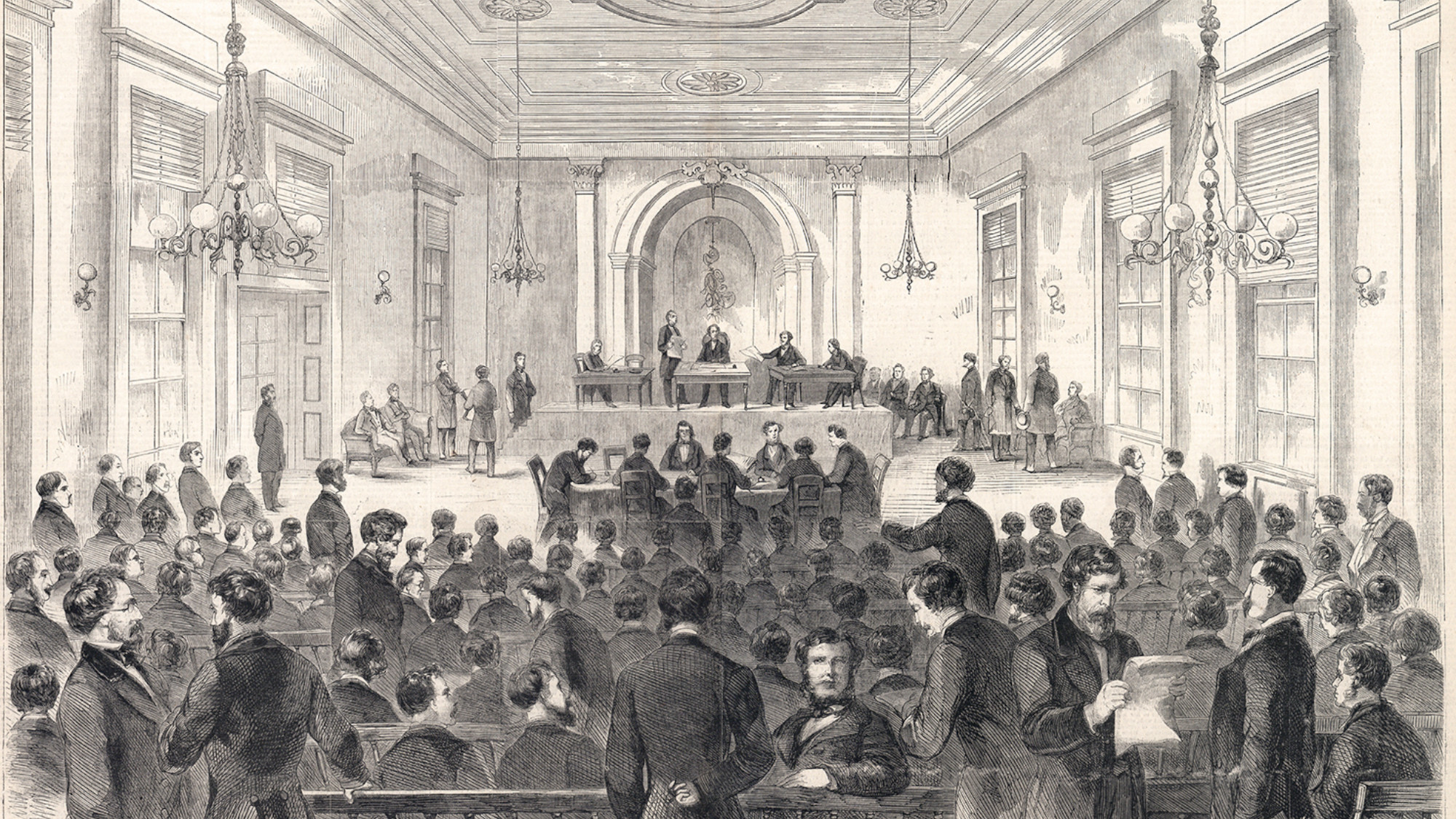Book reviews: '1861: The Lost Peace' and 'Murderland: Crime and Bloodlust in the Time of Serial Killers'
How America tried to avoid the Civil War and the link between lead pollution and serial killers

A free daily email with the biggest news stories of the day – and the best features from TheWeek.com
You are now subscribed
Your newsletter sign-up was successful
'1861: The Lost Peace' by Jay Winik
The most serious attempt to evade America's Civil War was probably doomed to fail, said Adam Gopnik in The New Yorker. But that effort at reconciliation was "more substantial than most subsequent histories have acknowledged," and historian Jay Winik has made it the focus of his latest work. The subtitle here mildly overpromises. "Nowhere in the book do we encounter a truly plausible compromise that might have averted the conflict." Winik instead uncovers insights into the war's causes by looking closely at a peace conference convened at a Washington hotel four weeks before Abraham Lincoln's March 1861 inauguration. The event brought together 131 delegates from both free and slave states, and the Northern delegates contemplated surprising concessions, including letting slavery continue to exist where it already did. Even so, "Winik offers a portrait of two sides talking past each other, rather than with each other."
"The political intrigue leading up to 1861 rivals the battlefield action readers have come to expect from Civil War histories," said Andrew DeMillo in the Associated Press. Lincoln opposed slavery on moral grounds and signaled that it was destined to die out eventually, but Winik depicts him as a careful politician who was able to present himself as a moderate open to negotiating with the representatives of the slave states. Still, "1861 is one of the few Civil War histories where Lincoln isn't the most compelling figure." That title might belong to any of several figures, including abolitionist John Brown and John J. Crittenden, a U.S. senator from Kentucky who, despite owning slaves, defied sentiment in his home state by urging compromise to avoid a national breakup. Winik's "taut yet dramatic" writing style "makes the book a compelling read even for those well versed in the history."
"Winik diverges from recent scholarship that views the war as unavoidable and the fight for emancipation as righteous," said Harold Holzer in The Wall Street Journal. The Lincoln we meet here "emerges as less idealistic and more stubborn than in most portraits," and Winik suggests that our revered 16th president wasted the opportunity to avoid a devastatingly deadly war when he backed off from compromising and rejected the recommendations of the peace conference. In the end, however, Winik describes the war as necessary and Lincoln as a genius. And whatever argument you may make against Winik's interpretation of events, the author of April 1865: The Month That Saved America remains as appealing a historical guide as he was when that book was a No. 1 best-seller 24 years ago. "Winik has lost none of his narrative verve, ear for dialogue, eye for the unexpected detail, and willingness to stir some controversy."
The Week
Escape your echo chamber. Get the facts behind the news, plus analysis from multiple perspectives.

Sign up for The Week's Free Newsletters
From our morning news briefing to a weekly Good News Newsletter, get the best of The Week delivered directly to your inbox.
From our morning news briefing to a weekly Good News Newsletter, get the best of The Week delivered directly to your inbox.
'Murderland: Crime and Bloodlust in the Time of Serial Killers' by Caroline Fraser
"As the title helpfully warns, Murderland is not for the faint of heart," said Chris Hewitt in The Minnesota Star Tribune. Author Caroline Fraser, whose previous book was a Pulitzer Prize–winning biography of Laura Ingalls Wilder, has now plumbed a much grimmer topic, digging into the crimes of 1970s and '80s serial killers to argue that the breed proliferated in that era because so much of the population was poisoned by exposure to lead and other heavy-metal pollution. While "there is scientific evidence to indicate that those metals can deform brains," Fraser "mostly doesn't offer the evidence." Even if her argument leaves you unpersuaded, however, "her book is mostly riveting." She's incensed that dirty industries were allowed to contaminate the air and soil, and "she has a terrific eye for telling—and, usually, horrifying—details."
"Fans of linear narratives will find this book maddening," said Timothy Egan in The New York Times. Fraser mixes memories of her childhood outside Seattle with a history of the smelting industry that befouled Washington state while enriching the Guggenheim family. Starting with Ted Bundy, who grew up in nearby Tacoma under the toxic plume of an Asarco smelting plant, she details the backgrounds and murder sprees of many serial killers. She jumps around even more than that summary implies, yet "she mostly gets away with this disjointed structure because she's such a gifted writer." Given that she provides so little scientific evidence, her linking of lead pollution and grisly murder "works best as a literary theme: crimes of industry spawning crimes of the heart."
"The science seems speculative until the book's conclusion," said Hamilton Cain in the Los Angeles Times. There she highlights recent data that maps a correlation between lead exposure, homicide, and criminal arrest. Environmental regulations eventually helped cut lead pollution, which may explain why the number of U.S. serial killers plummeted after a 1980s peak. Her mission, though, seems to be to "shock readers into a deeper understanding of the American Nightmare—ecological devastation entwined with senseless sadism." In that, she succeeds. "Murderland is a superb and disturbing vivisection of our darkest urges, this summer's premier nonfiction read."
A free daily email with the biggest news stories of the day – and the best features from TheWeek.com